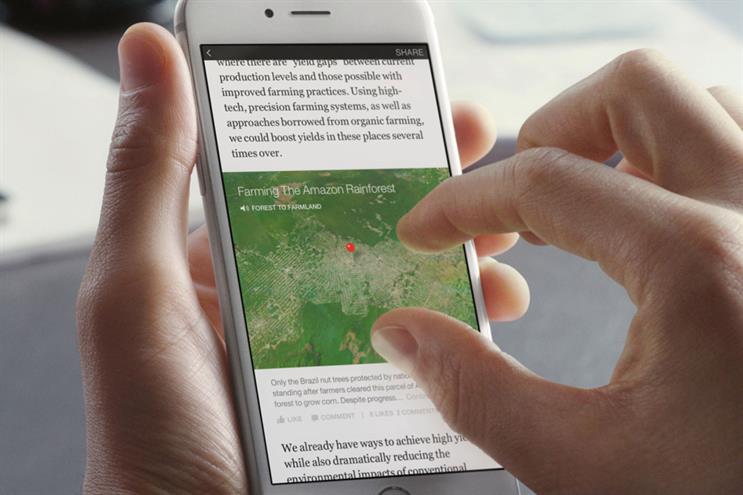
In an industry which loves to celebrate the new, there’s a distinct familiarity about today’s digital media landscape.
Ten years ago, two companies had huge control over our online experience – Yahoo and MSN.
Nielsen figures for September 2006 show that MSN reached 76% of the UK’s online population, with an average user spending 2 hours 25 minutes on the portal each month. Yahoo’s reach figure was just over 50%, its average time per person 1 hour 12 minutes.
Fast forward ten years and digital media has changed considerably, but it is again dominated by two companies – now Google and Facebook.
Both are growing to resemble the portals they’ve replaced. Just as the original portals would sit within the software needed to get online via desktop, Facebook and Google have become gatekeepers to a mobile internet increasingly experienced through their apps. Together they now account for more than half of worldwide mobile internet ad spend.
Most recently Facebook and Google have launched products which move them from platforms aiding discovery of other people’s content to walled worlds hosting their own.
Last year while Google announced (AMP). Both products allow the platforms to directly host publishers’ content within their own ecosystem.
Whilst their primary goal is to improve mobile bounce rates they could greatly change the dynamic between platform, advertiser and publisher – particularly in terms of the contrasting effect they may have on the content produced by advertisers and publishers.
For advertisers the slicker mobile environments promised within these walled worlds is encouraging.
The Wall Street analyst Mary Meeker may argue for increased mobile spend to match time spent on mobile, but the industry can’t do this whilst the ad offering is dominated by formats which irritate users, are easily ignored and increasingly blocked.
The native "in-feed" advertising which Facebook and Google have concentrated on has succeeded on mobile where display is failing. It sits more comfortably within our mobile experiences and is less susceptible to being blocked.
Last month Instant Articles were rolled out beyond the original test cases and are now available to all publishers. There are already which allow content to be published directly as an Instant Article. This allows advertisers to take advantage of Instant Articles directly by publishing their own content within them. In future they may also become a common feature in everything from partnerships with nationwide press brands to blogger outreach campaigns.
Facebook’s Canvas format, operating like an advertiser’s micro-site housed within the newsfeed, is another boost for advertisers.
This is great if you’re using content to promote a product or service. But for publishers whose primary product is content, walled worlds pose a quandary.
Publishing within Facebook and Google will almost certainly allow them to reach more of their audience.
At the same time however they have to relinquish control over the user experience and potentially monetisation of their content and control over data that comes from it.
If publishers are increasingly forced to publish outside their site to reach an audience, and they find it has a detrimental effect on their income, then we are facing a problem akin to ad-blocking, where those that create the content are not adequately remunerated for the work which went into it.
Whilst a walled world is not in itself a bad thing for advertisers or publishers, neither advertiser nor publisher will want to become reliant on two powerful gatekeepers who control the entire digital ecosystem and its monetisation.
The portals of 10 years ago lost their control over the market when faced by a number of exciting start-ups who provided a more social experience.
While Google and Facebook very quickly rose from modest beginnings to supersede the portals, they now continually protect themselves against being caught in the same way.
Each buying up companies which threaten their position.
It’s encouraging therefore to see the success of Snapchat, a company which turned down Facebook's millions and is successfully developing its own walled world.
Chris Herbert is a strategist at the7stars


.jpg)


.jpg)